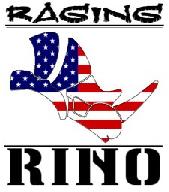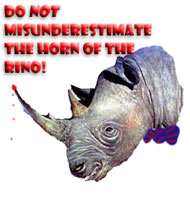January 06, 2005
Tolkien and Conservatism
Professor Bainbridge links to a Tech Central Station article by Joshua Livestro examining, once again, the issue of whether J.R.R. Tolkien's Middle Earth is the philosophical property of liberals or conservatives. Livestro focuses primarily on Tolkien's well-known distrust of industrial technology and (I think) attempts to argue that developments in post-industrial technologies, which have resulted in the cleaning of the environment, better health, more security and greater freedom of communication and travel for the individual, would have met with Tolkien's approval. Prof. Bainbridge, in his commentary, suggests that Tolkien was, in fact, a conservative, but more in the traditional sense espoused by Russel Kirk rather than that of free-market Goldwater libertarianism. He also tees up some interesting questions regarding the tension between these forces.
I really don't know. But something in Livestro's comments struck me:
The main reason why liberals past and present have returned to the novel is of course its techno-sceptic attitude. Tolkien's Middle Earth isn't just an Arcadian fantasy about creatures deeply at one with nature. It is also, or perhaps more importantly, a story about the struggle between the forces of stagnation (good) and material development (bad).
I don't think this is a good comparison. First of all, there is absolutely nothing stagnant about Middle Earth. Indeed, the more one reads its history, the more one is impressed with its constant volatility, as kingdoms rise and fall, peoples are displaced and even the very landscape is transformed. The entire LOTR trilogy is concerned with the final showdown with Sauron, the passing of the Elves and the beginning of the Age of the Dominion of Men, a complete shake-up of the status quo. Those who understood these dynamics, Gandalf, Aragorn, Elrond, Galadrial, etc., are praised for their wisdom and spend most of the story attempting to guide the forces of transformation for the Greater Good. Those who refuse to pay attention to the changing world around them and instead try to cling to a cherished but false stagnation, the Hobbits, the Men of Bree, Tom Bombadil and the Ents, are all forced - finally - to face up to the inevitability of these changes. Those who can't face up, Saruman and Denathor in particular, snap.
With respect to technology and material comfort, I'm not altogether convinced that we can say Tolkien thought all technological progress was bad. Everybody likes to focus on the new mill that Lotho had built in the Shire. But what were the specific objections to it? That it was ugly and pollutant; that it was useless because, even though it had a greater grinding capacity, there was no more grain to be ground than there had been previously; and because Ted Sandyman spent his whole day cleaning gears for "Sharky" instead of being his own master. This looks to me more like a specific concern with the effects of rampant proletariat-generating industrialization rather than an aversion to technological improvement in its own right. Given all this, I think Bainbridge's suggestion that Tolkien's conservatism was Kirkian in nature is probably correct.
Timothy Sandefur has had an interesting string of posts about the philosophical differences between libertarians (i.e., classical liberals) and conservatives (Start here and scroll down for about a week).
One problem in using the terms "liberal" and "conservative" is that they have been burdened with political baggage inconsistent with their strict and classical meanings.
I think Tolkien was a classical conservative. He liked social order and was skeptical of industrialism and how it disrupts an idyllic pastoral life (Shire=England). Much of his epic works had to do with preserving the best of the past in the face of change and destruction. All conservative ideas.
The reason so many leftists (think the 1960s hippies) liked him is that they themselves are "conservatives."
I dare not comment, lest I end up with a 3 hour analysis ahead.
I think Tolkein has both conservative and liberal aspects. But long story short -- I think he's primarily a conservative; the focus of the work is facing down evil in a moral sense (evil being the loss of freedom). The eco-politics of Tolkein I think are secondary. I dare not say more lest I end up with a Bill-Whittle-length-post on it on my site -- or on yours.
Really the "politics of Tolkein" is a doctoral thesis for someone. My wager is that somebody's already done it. A fertile subject, to say the least.




